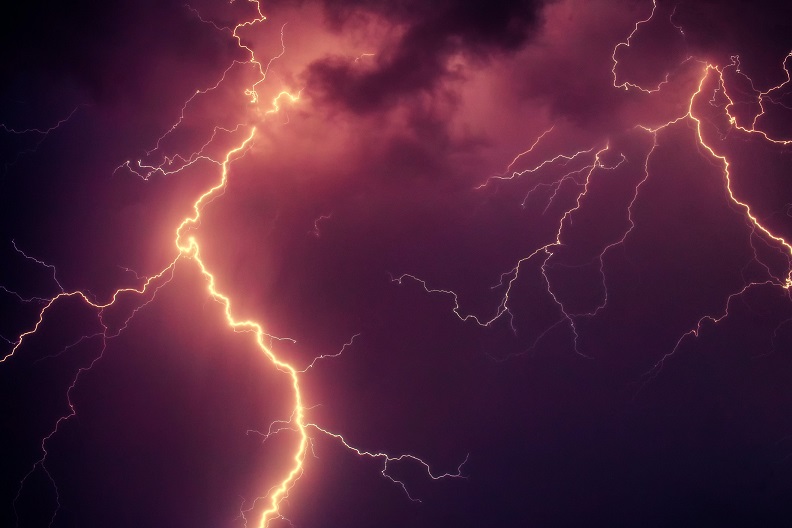How embarrassing! As more details about JPMorgan ’s “The Bitcoinization of El Salvador” report come to light, the reality of the situation settles. Traditional organizations don’t have a clue that the Lightning Network exists and is up and running. More so, Bitcoin is legal tender in El Salvador because and only because El Zonte is a living and breathing example of the Lightning Network’s practicality.
With an omission that big, it could be argued that everything on that report is invalid. However, we’re going to take charge and respond to the tidbits that Bloomberg published. Take into account that the full text is not yet available for public consumption and that we at Bitcoinist already covered a preview of it:
Banking giant J.P. Morgan commented on the “Bitcoinization of El Salvador” in a recently published research. The banking institution compared the “Bitcoin Law” approved by this countries congress with the country’s dollarization process in the early 2000s. The bank said:
(…) this move does not seem motivated by stability concerns, but rather is growth-oriented but it is difficult to see any tangible economic benefits associated with adopting Bitcoin as a second form of legal tender.
Yeah, you’re failing to see quite a lot, JPMorgan. And you’re going public with your lack of knowledge.
Related Reading | Not Just A Fad: Bitcoin Adoption Curve Rivals The Internet
What Do We Know About “The Bitcoinization of El Salvador”?
In a recent tweet that sparked this article, Avanti’s Caitlin Long informed us that the JPMorgan report was “written by its LatAm research team.”
WOW—pal sent me a @jpmorgan research report “The Bitcoinization of El Salvador” written by its LatAm research team, & it doesn’t mention #LightningNetwork even once.🤦♀️It’s clear they don’t even understand the basics. Why does anyone pay attention to WallSt research on crypto???🤷♀️
— Caitlin Long 🔑⚡️🟠 (@CaitlinLong_) July 10, 2021
And Bloomberg even gives us some of the names of the people responsible:
“Bitcoin trading volumes commonly exceed $40 billion to $50 billion per day, but most of that is internalized by major exchanges, said a group from JPMorgan including Steve Palacio, Joshua Younger and Veronica Mejia Bustamante”
And then, they hit us with the shocking fact that Bitcoiners are HODLing:
A large portion of Bitcoin is locked up in illiquid entities, with more than 90% not changing hands in more than a year — with a “significant and rising fraction held by wallets with light turnover”
Are they suggesting that the Bitcoin market lacks liquidity? Because it doesn’t. Tesla tested this already with an amount no Salvadorean will ever reach. And JPMorgan ’s LatAm team knows this. However, they still say that the non-existent illiquidity is, “potentially a significant limitation on its potential as a medium of exchange.” Two “potential” in a row denote a lack of confidence, but that’s neither here nor there.
Let’s get to it, what are these JPMorgan people trying to say?
“Daily payment activity in El Salvador would represent ~4% of recent on-chain transaction volume and more than 1% of the total value of tokens which have been transferred between wallets in the past year”
Ok, that would be true if all of the transactions took place on-chain. They won’t. Because El Salvador is using the Lightning Network.
Wall Street analysts et. al., get over yourselves. Look to the plebs and the leadership of El Salvador to understand the decision that nation made. I started here. (You’re welcome). https://t.co/ycl8EP04Y2 https://t.co/DLPn8NpP2Y
— Cynthia Lummis 🦬 (@CynthiaMLummis) July 10, 2021
JPMorgan Actually Thinks People Will Choose Dollars Over Bitcoin
The next point of “The Bitcoinization of El Salvador” we’re going to challenge is the most ridiculous one. According to Bloomberg, the report suggests that:
A persistent imbalance of demand for Bitcoin/U.S. dollar conversions on the government platform could “cannibalize onshore dollar liquidity” and eventually introduce fiscal and balance of payments risk
Even though JPMorgan is not actually saying the words, the idea that the people of El Salvador will prefer the US Dollar to the soundest currency ever made is there. That might happen at the beginning, people will likely approach the situation carefully and choose what they know, the US Dollar. Give them enough time and the whole population will instinctively figure out which of the two currencies is the hardest. And they will join the HODLers.
BTC price chart for 07/12/2021 on Gemini | Source: BTC/USD on TradingView.com
JPMorgan ’s Expert Witness Also Ignores The Lightning Network
To be fair, in the article it’s not clear if it’s Bloomberg or JPMorgan ‘s report that brought this to the table. However, they quoted this gem:
“Bitcoin is the worst payment system ever invented. It’s terrible,” said William Quigley, the co-founder of stablecoin Tether and a pioneer of multiple aspects of the cryptocurrency space, in a recent video interview. “Almost any token is better than Bitcoin as a payment system.”
That’s because “almost any token” is centralized, Mr. Quigley. And that includes Tether and Ethereum. If you choose to do things in a decentralized way, there are trade-offs you have to make, but that’s beside the point. With the Lightning Network into the picture, Bitcoin is as fast and reliable as all those tokens. And the system runs over what’s arguably the only decentralized network there is.
Related Reading | 3 Biggest Bitcoin Takeaways from JPMorgan’s Q3 Earnings
The question, nevertheless, is, why don’t Mr. Quigley, Bloomberg, and JPMorgan acknowledge the existence of the Lightning Network? It’s not hidden. It’s right there, at the mere center of the El Salvador story.
Featured Image by Johannes Plenio on Unsplash - Charts by TradingView
